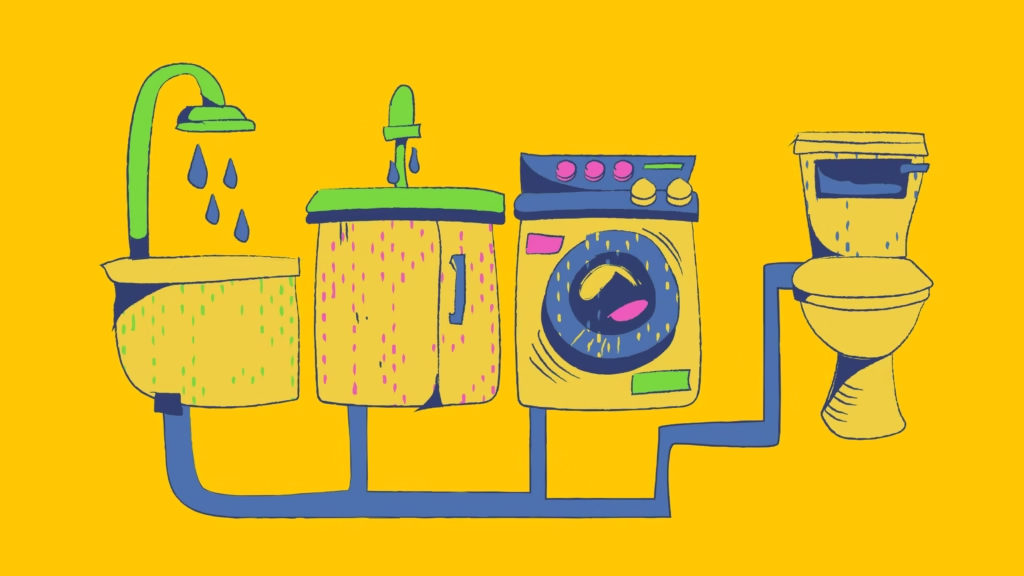
Are you living the off-grid dream but finding water management a bit overwhelming? You’re not alone! Managing off-grid water systems can be challenging, but with the advancements in automation technology, it doesn’t have to be. Did you know that embracing automation can not only make your system more efficient but can also save you substantial time and energy? Imagine waking up every day knowing your water system is running seamlessly, leaving you more time to enjoy the beauty of off-grid living. In this guide, we’ll explore seven effective ways to automate your off-grid water systems, ensuring you maintain a sustainable lifestyle without compromising on convenience.
Why Automate Your Off-Grid Water System?
In off-grid living, every drop of water counts. Efficient water management is vital not only for your everyday needs but also for maintaining environmental sustainability. That’s where automation steps in, changing your off-grid lifestyle significantly.
When you automate your water systems, it streamlines processes and ensures efficient use of resources. Automation minimizes the manual intervention you’ll need to keep your water systems running smoothly. Imagine the time saved and energy conserved when your water systems function independently!
But it’s not just about saving time. It’s about reliability, too. Automated systems help maintain consistent performance, reducing the risk of human error. They are designed to detect potential issues before they escalate into problems that could disrupt your water supply.
Moreover, automation promotes sustainable living by optimizing water usage, minimizing wastage, and thus preserving natural resources. By monitoring and managing water with intelligent systems, you’re less likely to experience overuse or shortages—a common concern when living off the grid. Overall, automation makes off-grid water systems not only more efficient but also more aligned with eco-friendly practices.
1. Smart Water Monitoring Systems
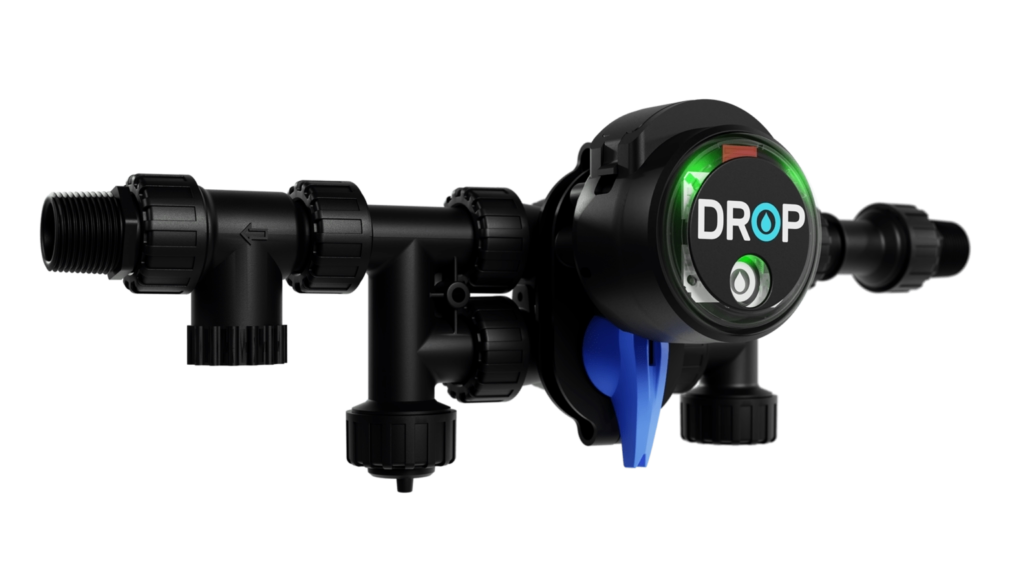
Smart water monitoring is a game-changer in off-grid living. These systems use advanced sensors to track and report water levels, flow rates, and even quality from your storage tanks and water sources. But how do they really transform your water management?
With smart sensors, you can receive real-time updates about your water usage, helping you make informed decisions. These sensors can measure,
- The volume of water available,
- Alert you of any drastic changes in water levels
- detect discrepancies that may indicate leaks.
The most significant advantage of smart monitoring systems is their ability to integrate with remote devices. Imagine checking your water levels from your smartphone or tablet, no matter where you are! This remote monitoring capability ensures that you can manage your water resources even when away from home.
Smart water monitoring also enhances conservation efforts. By understanding your water usage patterns through detailed analytics, you can adjust consumption habits to reduce waste. This not only helps preserve your supply but also extends the life of your water sources. So, if you’re aiming for a robust and reliable off-grid water system, integrating smart monitoring is an essential step.
2. Automated Water Pumps

When it comes to off-grid water systems, pumps are the muscle that keeps your water moving. Automation in water pumps revolutionizes how you manage water transfer in your system, making it more efficient and less labor-intensive.
Automated water pumps can be programmed to operate without manual intervention. They turn on and off based on specific criteria such as water demand, time schedules, or water level changes. This means you don’t have to physically start and stop the pump, freeing up your time for other activities.
One of the most sustainable options available is solar-powered pumps. By harnessing solar energy, these pumps provide a renewable power source that aligns with eco-friendly living. Solar pumps are ideal for remote areas where traditional electricity is limited or unavailable, offering a nature-friendly solution that doesn’t increase your carbon footprint.
Choosing the right automated pump depends on various factors, such as your water needs, the distance water must travel, and your energy availability. Consider the pump’s capacity, its energy requirements, and compatibility with your existing systems. With automated pumps, you not only ensure steady water supply but also enhance the overall efficiency of your off-grid setup.
3. Timers and Controllers for Irrigation
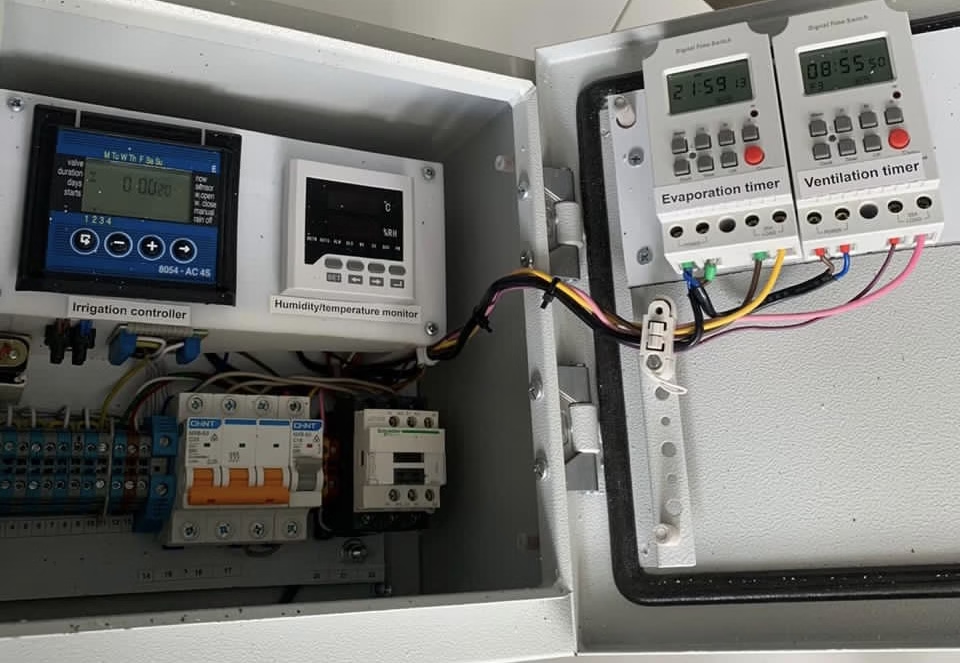
Watering your crops or garden can be time-consuming, but automated irrigation systems equipped with timers and controllers can drastically simplify this task. These systems ensure your plants get just the right amount of water, without the need for manual intervention.
Timers and controllers allow you to schedule when and how much water is distributed to your plants. By setting specific watering times, you can avoid over-watering and ensure your garden thrives even during dry spells. This precision in watering conserves water, a scarce resource in off-grid settings.
Moreover, advanced controllers can adjust irrigation schedules based on weather conditions, soil moisture levels, and more. This smart irrigation technology maximizes efficiency and minimizes wastage, ensuring every drop serves a purpose.
Examples of effective timer setups can include systems that water early in the morning, reducing evaporation losses. Additionally, integrating moisture sensors means that the system only waters when necessary, promoting optimal plant health. By using automation in your irrigation practices, you ensure lush gardens with minimal effort.
4. Rainwater Harvesting Automation

Rainwater harvesting is a cornerstone of sustainable off-grid living. Automating this process ensures you capture and store as much rainwater as possible without manual oversight. But what does an automated rainwater system look like?
These systems use sensors and controls to manage every aspect of rainwater collection and usage. Sensors can detect rainfall levels and activate pumps to channel water into storage tanks automatically. Once stored, the system regulates the distribution of water based on your settings.
This automation maximizes the efficiency of rainwater use. Instead of manually opening and closing valves, automated systems do this based on pre-set conditions. It allows optimal use of every drop of rainwater, ensuring nothing goes to waste.
Moreover, rainwater automation systems can be integrated with smart monitoring to provide data on water levels and usage patterns. This gives you insights to further fine-tune your system for even greater efficiency. By harnessing the power of nature through automation, rainwater becomes a reliable and sustainable resource for your off-grid needs.
5. Water Filtration System Automation
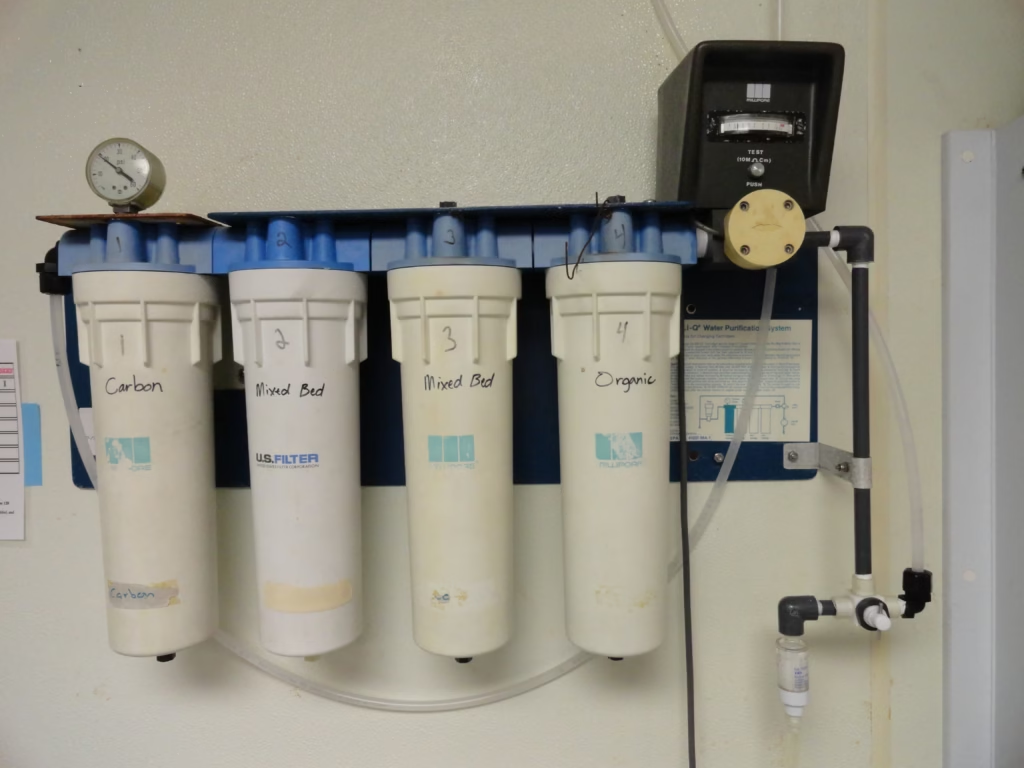
Filtering your water is crucial for maintaining health and hygiene in off-grid living. Automated filtration systems improve this process—ensuring water quality is consistently high without requiring constant manual checks.
Automated systems can manage various filtration stages, such as sediment, carbon, and reverse osmosis, by monitoring parameters and activating filters as needed. This guarantees that only the cleanest water reaches your taps and storage tanks.
Routine maintenance, often a deterrent for manual systems, is simplified through automation. These systems often come with alerts or reminders for when filters need replacements, preventing lapses that could compromise water purity.
Integrating automated filtration with your broader water management system can significantly enhance overall water quality. The assurance of safe, potable water at all times allows you to focus on other aspects of off-grid life, knowing your water supply is pure and reliable.
6. Leak Detection and Prevention

Leaks can be a silent threat to your off-grid water system, leading to wastage and possible contamination. Implementing automated leak detection technologies is essential to conserving water and ensuring system integrity.
These systems use sensors that detect water presence in areas it shouldn’t be and alert you immediately. Advanced leak detection can also shut off water supply automatically upon detecting a leak, preventing severe loss and potential damage.
Integrating leak detection systems into your existing setup is relatively straightforward. By placing sensors in strategic locations—beneath pipes, around water tanks, and near connections—you ensure the best coverage maximum coverage. This proactive approach not only safeguards your water resources but also prolongs the lifespan of your system components.
Automation in leak prevention transforms potential disasters into manageable incidents. With immediate alerts, you can take timely action, minimizing repairs and preserving your precious water supply.
7. Utilizing Renewable Energy Sources
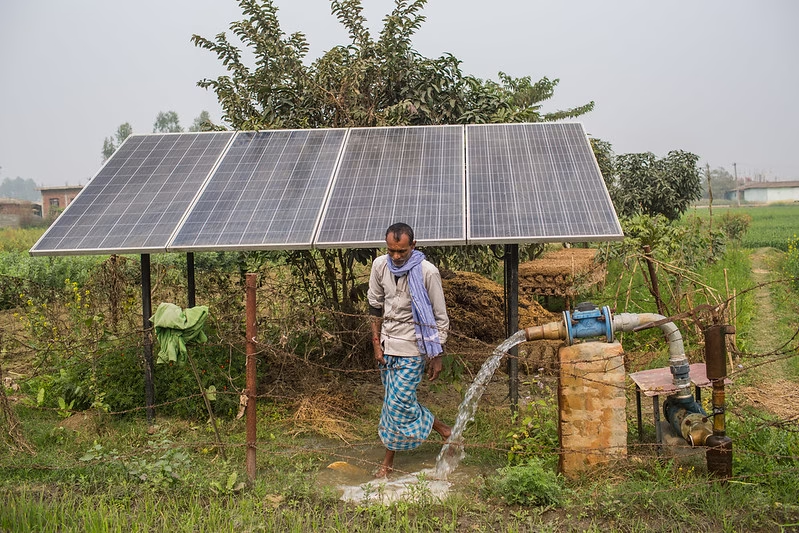
Renewable energy and off-grid water systems are a match made in sustainability heaven. Solar and wind power offer excellent alternatives for automating your water systems, reducing reliance on non-renewable sources.
Solar energy, harvested through panels, can power water pumps, filters, and control systems, offering a clean and efficient solution. Wind power can also drive pumps, particularly in areas with consistent wind patterns.
Successful integrations often involve a hybrid approach, combining both solar and wind energy to ensure continuous operation even when conditions vary. This not only enhances the reliability of your water system but also echoes an eco-conscious lifestyle by reducing carbon emissions.
A case study on a solar-powered pump’s ability to supply water for rural or isolated zones was conducted and concluded that despite the pros of just using sustainable energy, it was also a cost-effective solution for off-grid areas.
By utilizing renewable energy sources, your off-grid water system becomes more resilient and environmentally friendly, embodying the true essence of green living.
Automating your off-grid water system can transform your living experience, providing efficiency and peace of mind. By integrating advanced technologies, you can ensure sustainable and hassle-free water management. So, why wait? Start exploring these automation solutions today and take a step closer to a more convenient and eco-friendly off-grid lifestyle.
